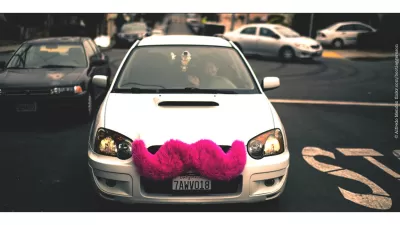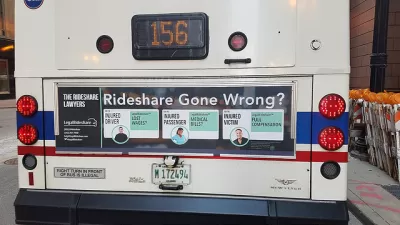Two experts consider the future of cab companies in the age of Uber and Lyft.
As the rise of transportation network companies (TNCs) globally erodes the franchises of locally regulated taxis, cities are at risk of losing their regulated, insured cab fleets. Municipalities are weighing ways to capitalize on new technologies while still maintaining options for passengers across neighborhoods and socioeconomic levels.
Drawing on remarks recently made on the VerdeXchange 2015 Conference panel "How Technology and Competitive Drive Are Reinventing Mobility and the Urban Environment," Bill Rouse, General Manager of Yellow Cab of Los Angeles, and Gabe Klein, a Special Venture Partner at Fontinalis Partners with experience leading public-sector DOTs, offered their perspectives on changes to urban ground transportation.
Klein provided an example of a city proactively addressing the problem: "Washington D.C. is leading the way—as it has on things like bike share, circulator buses, and streetcars. The D.C. model for deregulation of the taxi industry—creating a co-op as a virtual layer of management that unifies the taxi industry—and putting every taxi in the city on one app creates an environment of healthy competition. It’s allowing the taxi industry to step up its game. At this point, most of the taxi companies want to step up their game if the government would let them."
FULL STORY: TNCs Challenge 20th-Century City Taxi Regulation: Reinventing Urban Mobility

Planetizen Federal Action Tracker
A weekly monitor of how Trump’s orders and actions are impacting planners and planning in America.

San Francisco's School District Spent $105M To Build Affordable Housing for Teachers — And That's Just the Beginning
SFUSD joins a growing list of school districts using their land holdings to address housing affordability challenges faced by their own employees.

The Tiny, Adorable $7,000 Car Turning Japan Onto EVs
The single seat Mibot charges from a regular plug as quickly as an iPad, and is about half the price of an average EV.

With Protected Lanes, 460% More People Commute by Bike
For those needing more ammo, more data proving what we already knew is here.

In More Metros Than You’d Think, Suburbs are Now More Expensive Than the City
If you're moving to the burbs to save on square footage, data shows you should think again.

The States Losing Rural Delivery Rooms at an Alarming Pace
In some states, as few as 9% of rural hospitals still deliver babies. As a result, rising pre-term births, no adequate pre-term care and "harrowing" close calls are a growing reality.
Urban Design for Planners 1: Software Tools
This six-course series explores essential urban design concepts using open source software and equips planners with the tools they need to participate fully in the urban design process.
Planning for Universal Design
Learn the tools for implementing Universal Design in planning regulations.
Smith Gee Studio
City of Charlotte
City of Camden Redevelopment Agency
City of Astoria
Transportation Research & Education Center (TREC) at Portland State University
US High Speed Rail Association
City of Camden Redevelopment Agency
Municipality of Princeton (NJ)




























